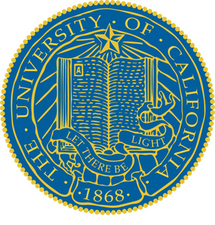
The head of the university system in the most populous US state said the step was "long overdue."
"To the surviving students themselves, and to their families, I want to say, 'This is one way to apologize to you,'" University of California president Mark Yudof said in a statement.
"It will never be possible to erase what happened, but we hope we can provide you a small measure of justice," he said.
One former student, Aiko "Grace" Obata Amemiya, attended the meeting and said in the statement that the vote "fills my heart with joy."
"I'm glad the university is recognizing that what the government did was wrong, and now my classmates and I can finally take our place as full-fledged UC alumni," said Amemiya, who lives in the midwestern state of Iowa.
Authorities herded more than 100,000 Japanese Americans, most of them US citizens, into internment camps months after Japan attacked Pearl Harbor, dragging the United States into World War II.
The US government offered formal apologies and compensation in 1988.
The University of California estimated around 700 students were pulled from four campuses -- Berkeley, Los Angeles, San Francisco and Davis -- and sent to camps after then president Franklin Roosevelt issued the internment order in 1942.
The university system has asked former students, or their relatives, to contact it over honorary degrees.
California follows the example of the University of Washington, which last year held a graduation ceremony in Seattle where some 450 aging Japanese Americans donned robes and finally received degrees.
---------------------------------------------------------------------------------------------------------------
"To the surviving students themselves, and to their families, I want to say, 'This is one way to apologize to you,'" University of California president Mark Yudof said in a statement.
"It will never be possible to erase what happened, but we hope we can provide you a small measure of justice," he said.
One former student, Aiko "Grace" Obata Amemiya, attended the meeting and said in the statement that the vote "fills my heart with joy."
"I'm glad the university is recognizing that what the government did was wrong, and now my classmates and I can finally take our place as full-fledged UC alumni," said Amemiya, who lives in the midwestern state of Iowa.
Authorities herded more than 100,000 Japanese Americans, most of them US citizens, into internment camps months after Japan attacked Pearl Harbor, dragging the United States into World War II.
The US government offered formal apologies and compensation in 1988.
The University of California estimated around 700 students were pulled from four campuses -- Berkeley, Los Angeles, San Francisco and Davis -- and sent to camps after then president Franklin Roosevelt issued the internment order in 1942.
The university system has asked former students, or their relatives, to contact it over honorary degrees.
California follows the example of the University of Washington, which last year held a graduation ceremony in Seattle where some 450 aging Japanese Americans donned robes and finally received degrees.
---------------------------------------------------------------------------------------------------------------









 Home
Home Politics
Politics









